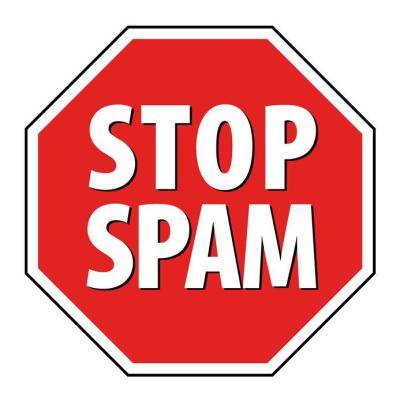Heart of Texas Network Consultants Blog
Just Step around the Spam
 Anytime you take a step into the Internet, there's a pretty good chance that you are going to step in a fresh and steamy pile of spam. Spam can ruin your company's Internet footprint. Spam can also find its way into the depths of your website and stink up the whole place. It's especially embarrassing when you don't even know that you have spam on the bottom of your virtual shoe; here's how it got there.
Anytime you take a step into the Internet, there's a pretty good chance that you are going to step in a fresh and steamy pile of spam. Spam can ruin your company's Internet footprint. Spam can also find its way into the depths of your website and stink up the whole place. It's especially embarrassing when you don't even know that you have spam on the bottom of your virtual shoe; here's how it got there.
Most spam is blatant advertisements and therefore easy to spot. A basic spam blocker will take care of the obvious ones from showing up on your website, but for the ones that make it past your spam blocker, it's up to you, Mr. or Mrs. Moderator, to determine if the comment is worthy of your website or not. Even though moderating can be a little time consuming, the traffic from having a good thread will increase the value of your website and make the time spent moderating worth it.
There is a need for good moderating. It's important that you're always aware of comments automatically posted onto your website, blog, YouTube channel, and even some of your social media websites without the approval of a moderator. A website that isn't monitored will get spammed on like a fire hydrant next to the Westminster Kennel Club.
The annoying thing about spam is that it can distract visitors from the message that you have worked hard to achieve on your website. If you care about your website, then you have likely agonized over the placement of every text box, picture and graphic, with the intention of focusing a user's attention on the important parts of your website. All of this thought and hard work can be undone with an attention-getting spam that promises discrete dates with local singles. Additionally, spam is tacky and looks unprofessional, the more spam that is published on your website, the more it stinks up the place and looks like your company does not care about details.
When it comes to spam comments on your websites, you need to know what to look for. Spam in your website comments is different than spam in your e-mail. Whereas with e-mail spam, a lot of it is pushed out by software, which is why it sounds generic and goes straight to your spam folder; with spam in the comments, it has to be published by a human to make it past the CAPTCHA. The person doing the spamming might even include a line regarding your topic to fool a moderator who is just giving the comments a quick once-over before approving them.
Don't let a stinky pile of spam ruin your Internet footprint. Stay vigilant against spam. Be sure to carefully tread the comment section and have in hand the tools ready to clean up a messy spam once you spot one. It is even a good idea to go back and check all of your sites on occasion, just in case you missed an old one; because even an old spam can still stink up the place.



Comments